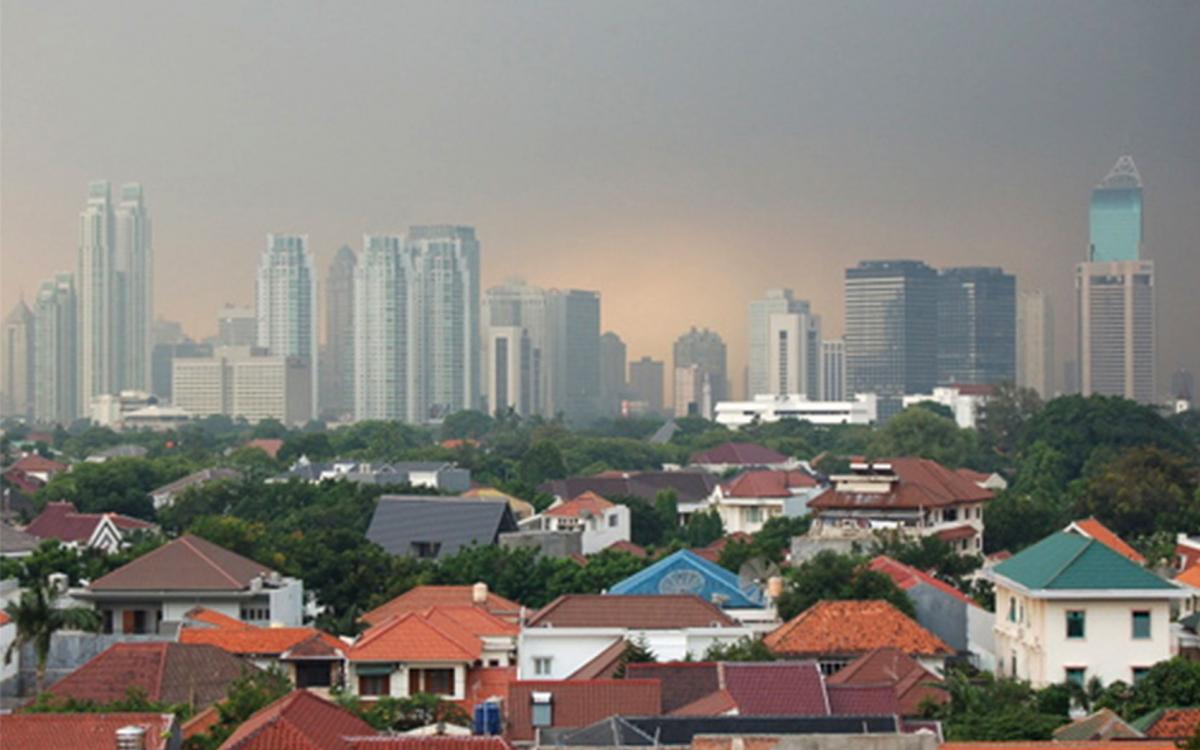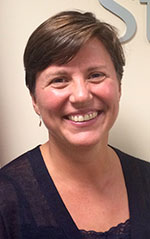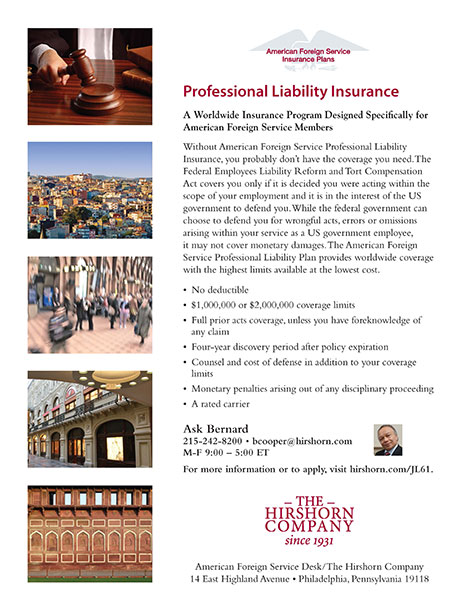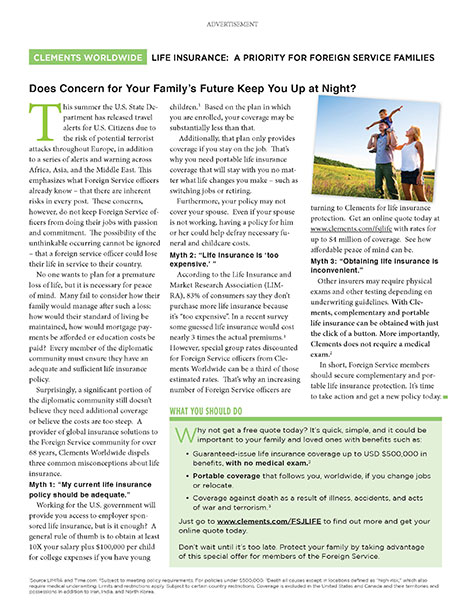Breathless in Jakarta—A Cautionary Tale
Pollution can lead to serious health issues, and dealing with that can be a bureaucratic nightmare.
BY DEBORAH LYNN
When I received word that my bid to be cultural affairs officer in Jakarta had been accepted, I was thrilled!
I looked forward to finding a great school for my son and daughter, doing interesting work in an important, Muslim-majority country, and exploring a country and region where I’d never served. To be sure, I understood the drawbacks to living in a megacity; the risk of contracting dengue, typhoid and other tropical diseases; and the horrendous traffic in Indonesia’s capital. But I was ready to take those challenges in stride.
Indonesia, indeed, proved to be a fascinating place to live, work and travel—until nine months into my tour, when I came down with pneumonia.
Running Ragged
Prior to arriving at post in 2014, I had prided myself on being physically active. I frequently participated in races ranging from 10 milers to marathons, and hoped to do the same in Jakarta. My work schedule made that more difficult, but I fit in runs whenever I could—at the school track while my son was at evening Boy Scout meetings or around my neighborhood on Saturday mornings.
In early June 2015, I felt myself fighting the hacking cough and upper respiratory issues that seemed to be making the rounds of our section of the embassy. When my lungs became so tight that simply breathing became difficult, I headed straight to the medical unit where I was given a nebulizer treatment.
Unfortunately, my health continued to deteriorate. I spent several weeks working from my sofa, handling pressing work issues via my Blackberry as best I could. The medical unit operated a branch at the South Jakarta American Club, where I lived, so I walked over there every couple of days for a check-up. The first several times, they sent me right back home to rest. But eventually they dispatched me to get chest X-rays, which showed pneumonia.
I still have no idea what the true extent of the damage to my lungs is.
Besides upping my medications and making me rest, there wasn’t much they could do. As a divorced mother of two teenagers, a medical evacuation was not a practical option, but I did spend several days visiting a pulmonologist in Singapore, who dismissively told me that the pollution was aggravating my lungs and recommended that I take asthma medication. But she offered no advice on how to heal my lungs, or whether that was even possible.
For the next seven months I relied on oral steroids, inhalers, nebulizer treatments and significant amounts of sick leave to meet the bare minimum work requirements. My lungs felt raw, like they were being crushed. I could barely breathe and talk at the same time, and my cough was horrifying.
I was no longer capable of any sustained physical exertion and had to dramatically cut back on what I could do, both as an officer and as a mother. I visited the health unit every few days and listened to a variety of theories of what was wrong with me. Imagine the horror of being told that maybe your latent tuberculosis was active again, or that you might have cancer or Legionnaire’s disease. Or the frustration of hearing speculation that maybe it was all stress-induced and in your head.
The staff finally settled on a diagnosis of “reactive airway disorder.” Given the limited medical options in Jakarta, very little could be done to treat it, and no one could be certain just how much long-term damage my lungs were enduring.
With a Lot of Help from My Friends
Some days I could only manage four hours in the office, and most evenings I was too exhausted to be the engaged mother I used to be. Friends and colleagues sent over cooked dinners and visited to make sure I wasn’t completely alone.
My direct supervisor was highly supportive and my staff went to great lengths to ensure that we continued moving forward on our programs and initiatives. But it became increasingly clear that continuing to live in Jakarta was no longer a viable option. So I began to look for an exit strategy, despite the personal and professional disappointment that came along with that.
While everything seems to have worked out in the end, the whole experience was more traumatic than necessary.
Because the 2015-2016 school year had already started, I looked for ways to plan an orderly departure for the following May, thinking I could survive on meds and sick leave until then and post could find a replacement while we were still in the normal assignment cycle. While my career development officer had never encountered a situation like mine, he was immensely helpful and did everything he could to support my shortening the length of my tour.
Yet despite having Embassy Jakarta’s support, we could not find a way to pull off a curtailment within the system. It seemed that only emergency departures from post, either as a compassionate curtailment or a medical one, were possible, which meant leaving within 30 to 90 days.
By this time, my daughter had moved on to college, but I was increasingly concerned about the impact of a midyear transfer on my son. Despite how hard it would be for me, the best option was to transfer him to join his father at his post. The Human Resources Bureau initially didn’t want to move him from my orders to his father’s until I had already been curtailed from post. But that would have required our son to return to the United States with me, and then be added to his father’s orders, only to transfer back to another Asian city.
Finally, after more than a month, HR figured out how to do a direct transfer for my son from Jakarta to his father’s post. During all this time, I survived on three to four nebulizer treatments daily to be able to function at the most basic level. Concurrently, we applied to the international school at my son’s new post and arranged for his visa. Once all this was in place, the regional medical officer asked the department to downgrade my medical clearance, and I curtailed from post.
Next I received a waiver extending the number of home leave days I could take to 45 so I could recover in the fresh, clean air in Kansas and Colorado. Friends and family were aghast at the sounds and fluids coming from my lungs, but after about three weeks, I was able to take long walks.
I have now been off my medication for several months, and I can run again, even though it is followed by intense coughing as my lungs continue to heal. Professionally, I’m very happy to have landed in a great office at State with interesting work. My son is now living with his father and has adjusted well to his new school. Technology has been great for keeping in contact with my son on the other side of the world, and I’m looking forward to an extended summer visit. But every day I miss the opportunity to be a part of his daily life and watch him grow up. His absence is, by far, the hardest part of all of this.
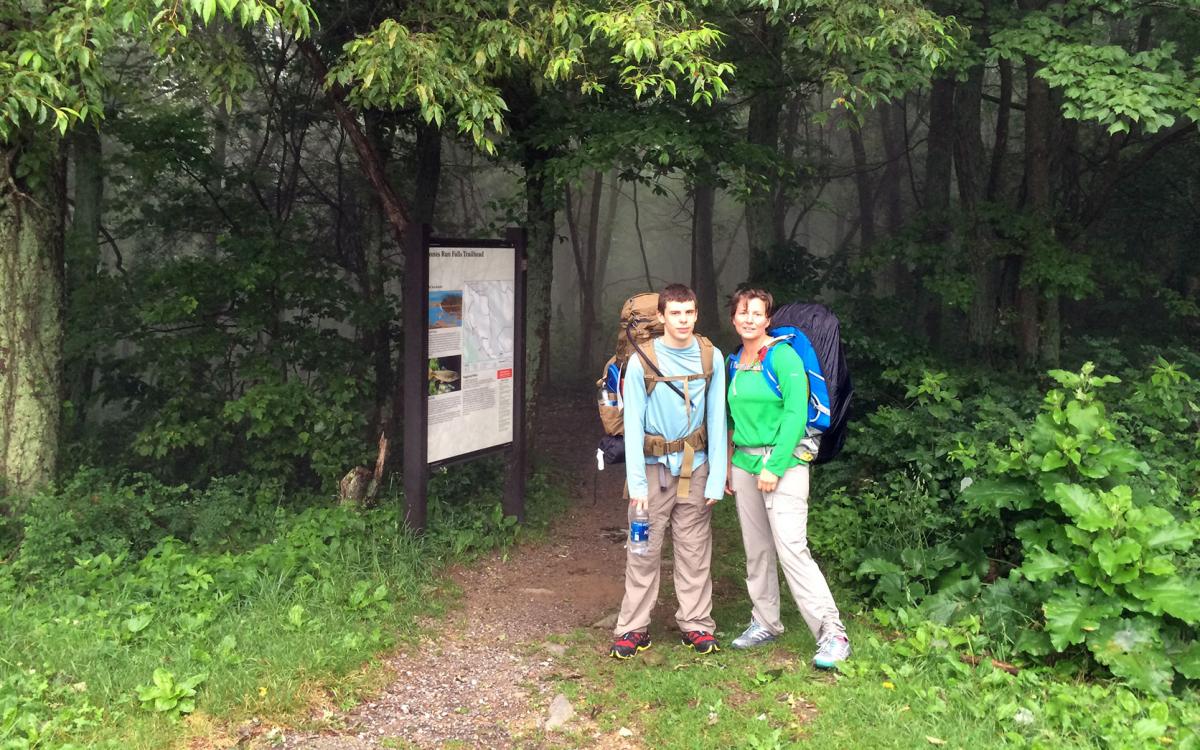
After her recovery, the author and her son, Ethan, enjoy a 78-mile hike in the Shenandoah National Park this past summer.
Courtesy of Deborah Lynn
Lingering Questions
While everything seems to have worked out in the end, the whole experience was more traumatic than necessary.
First, it shouldn’t have been such a struggle for me to get the help I needed to make a dire situation tolerable for me, my family and the post. It quickly became clear that the embassy medical unit was severely constrained in what it could do for me in Jakarta.
Since I returned to the United States this spring, MED has offered me neither support nor screenings, nor information on what happens to me next. And as I prepare to bid next summer, I have no idea what posts to avoid because of high pollution levels.
I still have no idea what the true extent of the damage to my lungs is, although I’m currently seeing a local pulmonologist who is running lots of tests. While I’ve heard that a State working group exists for people like me, I don’t know how or whether MED is tracking cases like mine to determine how pollution affects the health of Foreign Service employees and their families living overseas.
At the very least, additional flexibility within the Human Resources Bureau would lessen the impact on families who need to make arrangements in cases like mine.
Read More...
- “International Chemicals, Waste, and Air Pollution Issues” (U.S. Department of State)
- “Global Air Quality Partnership” (U.S. Department of State)
- “Air Pollution in World: Real-time Air Quality Index Visual Map” (aqicn.org)
- “Transboundary Air Pollution” (Environmental Protection Agency)
- “Air Pollution in Indonesia” by Satya Widya Yudha (The National Bureau of Asian Research)

